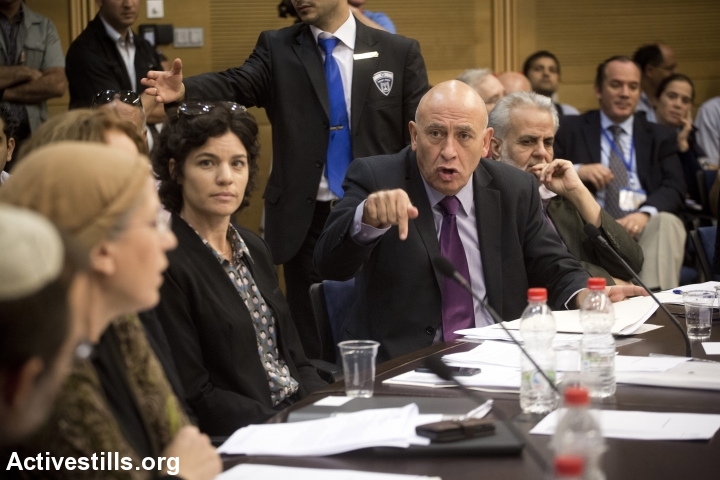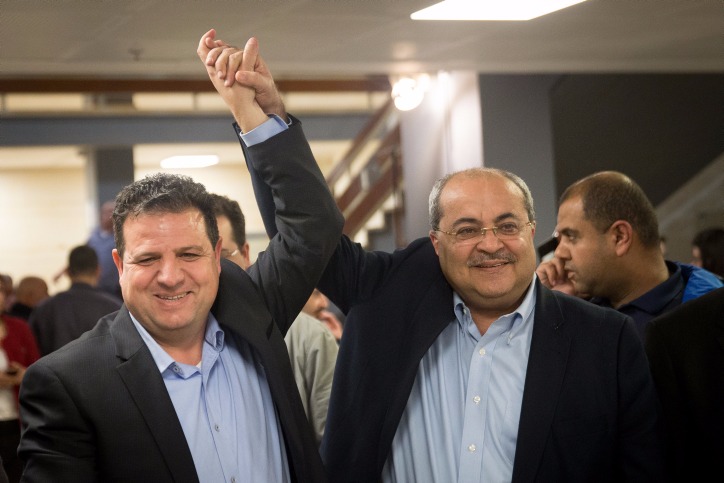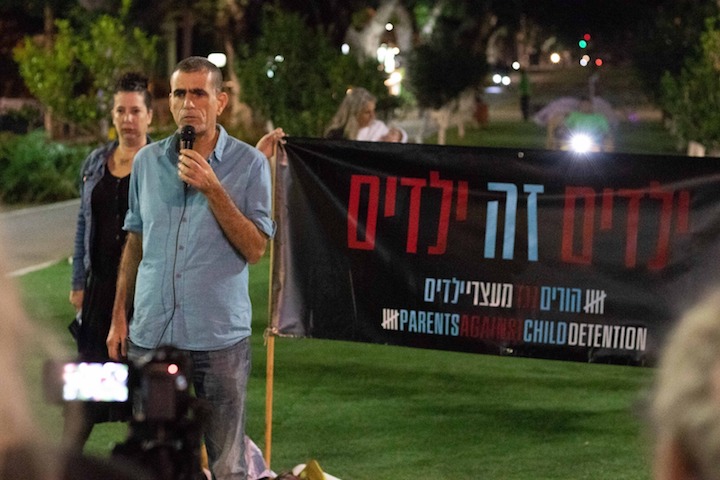As the Zionist left struggles to stay relevant, some members of Meretz are proposing a new way forward.

Top members of the Zionist left-wing Meretz party are trying to transform their party into one based on full Jewish-Arab partnership, just a month after it passed the election threshold thanks in large part to increased support from the Arab vote.
The demand, put forth by an internal Meretz group known as the Forum for Jewish-Arab Cooperation, calls on the party leadership to either formally join with Hadash-Ta’al — a union of the Arab-Jewish Hadash party and Ahmad Tibi’s Ta’al party — or transition into a fully-fledged Jewish-Arab party with an Arab party chairperson alongside a Jewish one.
Meretz received more than 30,000 votes from the Arab sector in the last elections, after MK Issawi Frej and Ali Salalha were voted into the party’s top five in the primaries. Many credit the Arab vote for pushing Meretz past the election threshold. Now some party members want to make the union official.
At a meeting of the Forum for Jewish-Arab Cooperation held at the end of April, members passed a motion demanding the party immediately establish a joint Jewish-Arab parliamentary faction between Meretz and Hadash-Ta’al, which would also be open to all left-wing parties. The meeting included 40 Meretz members, including Frej, former MK Mossi Raz, prominent human rights attorney Gaby Lasky, and longtime party activist Nir Cohen.
The motion, published in Arabic and Hebrew, also calls for internal changes inside the party should the unification motion with Hadash-Ta’al fail to pass. “The Forum will present an amendment to the constitution at the party conference to define Meretz as a Jewish-Arab party,” according to the motion’s wording. “This definition will include two chairpersons, one Arab and one Jewish, in every official party institution, including the party leadership, as well as an obligation that any official publication on behalf of Meretz be published in both Hebrew and Arabic.”
“We are opening the ranks to holding conversations and examining possibilities,” said Frej, who won the fourth spot on the Meretz parliamentary list in its last primaries. “I cannot dictate how far we will get, but the basis [of the party] should be Jewish-Arab so that we include everyone who views this partnership as the basis for a shared future of hope.”
“Meretz is in a difficult position politically, and its right to exist rests on the basis of Jewish-Arab partnership,” Frej continued. “Twenty-eight percent of votes came from the Arab sector. In order for Meretz to continue leading it needs a Jewish-Arab base. That’s what we are aiming for.”

In Frej’s view, Israel’s Arab citizens have shown that they are interested in a Jewish-Arab partnership. The problem, he says, lies with the Jewish public. “There is no political alternative,” he says. “I do not write off anyone — not the Labor Party, not Hadash or Ta’al, no Jew or Arab.”
“The future of the left is Jewish-Arab unity,” says Nir Cohen, Frej’s former parliamentary aid and chairperson of the Forum for Jewish-Arab Cooperation. “The right has been dividing and conquering us for years. We have no chance if we don’t join forces.”
Mossi Raz, who served as a member of Knesset on behalf of Meretz in the previous term, believes the current political moment means this kind of transformation is absolutely vital. “There are those who oppose it, but it is necessary. Even if Hadash-Ta’al do not agree, we need to pave the path in order to show that we are on our way to a joint party. I believe it is possible.”
In the run-up to the last elections, party chair Tamar Zandberg called on Meretz to unite with the Labor Party, but members of the Forum insist that the important connection is with Hadash-Ta’al. They also know that it won’t be easy. “You need two to tango,” Cohen says. “Hadash has as many complexities as Meretz, yet this unification is necessary. It does not mean dismantling the two parties, but rather uniting and running together as a joint list for the next Knesset.”

Forum members are aware that it will not be easy to convince party members to go along with such a dramatic shift. Supporters of the transformation warn of “far-reaching consequences” should their motions fail at the upcoming Meretz conference, scheduled for June 16.
Calls inside the party for Jewish-Arab partnership are not exclusive to members of the Forum. Yaniv Sagi, a longtime Meretz activist, has long been an ardent supporter of establishing an Arab-Jewish front. “Following the last elections, with the understanding that Meretz passed the election threshold due to Arab voters, many voices in the party now say it needs to change its strategy.” As opposed to the Forum, Sagi believes that Meretz must maintain its identity as a “Jewish Zionist party” while at the same time join a “wide platform that includes people from the left-wing flank of Labor all the way to, but not including, Balad.”
According to Sagi, there are three approaches inside the party: the maintain it as it is, to move toward a unification with the Labor Party in order to “rehabilitate the Zionist left,” and to support Jewish-Arab partnership. “I believe the party will be torn between the last two options. We will have meaningful argument over it.”
This article was first published in Hebrew on Local Call. Read it here.

